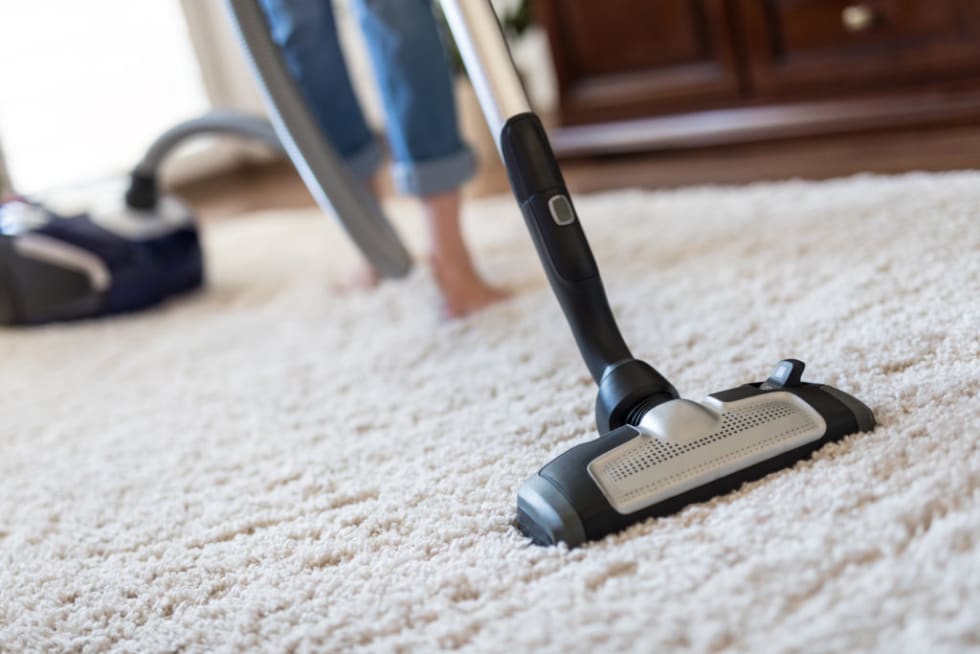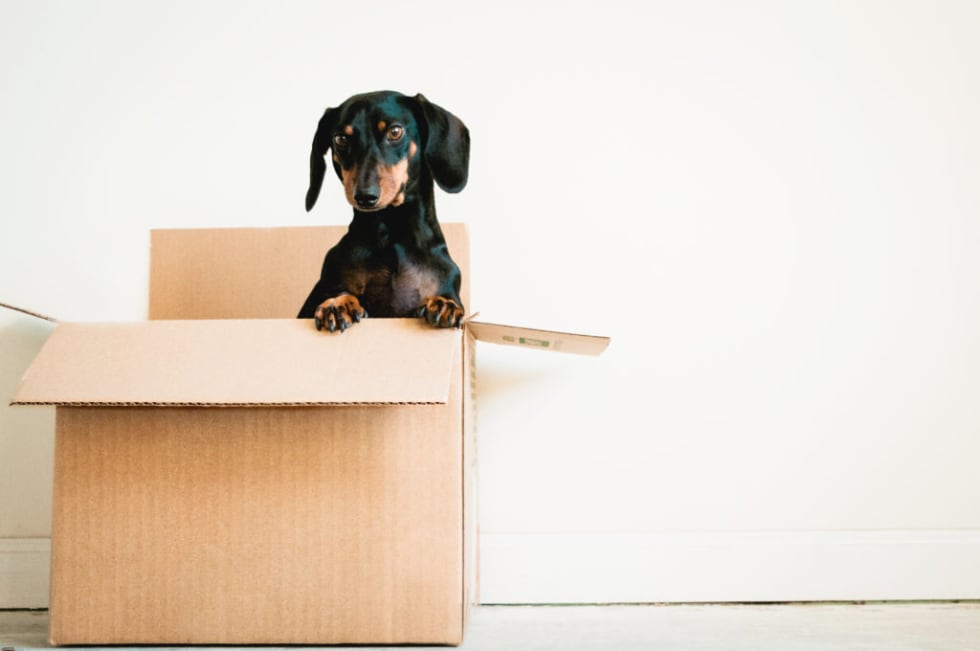How to Get Rid of Pet Odor in Your Apartment Units

Allowing pets in your apartment community is a great way to attract tenants and reach a wider audience. But, they also come with their pitfalls. Less-than-desireable smells is one of the big ones.
Have you ever walked into an apartment and felt like you needed to take a knee? Dog odors, cat urine, hamster litter, parakeet droppings, and so much more can all cause foul odors.
Stubborn stains and old urine can make it feel impossible to figure out how to get rid of pet odor. It can also lead to costly cleaning bills that may go beyond the scope of the security deposit. It may also discourage new tenants from signing a lease.
It may take some time and effort to remove pet odor from the carpet and other areas of the apartment. However, you can do it! Read on for our best tips.
- Identifying Pet Odors
- How to Neutralize and Get Rid of Pet Odors
- Proactively Prevent Pet Odor & Other Damage
- Additional Tips
- Final Thoughts
Identifying Pet Odors
The first step in figuring out how to get rid of pet odor is identifying the source. Check for urine and pet odors on the carpet and hardwood floors. Also check rooms with uncleaned cages.
You may get lucky and only discover dander and fur odor that’ll usually subside over time. It may respond to basic intervention. Old urine stains and animal vomit are a different story.
Instead of sniffing it out for yourself, try a blacklight. That can reveal urine spots, stains, and potential problem areas to spot clean.
You can give the entire home a deep clean. That’ll help eradicate the odor. Then, focus on those problem areas.
How to Neutralize and Get Rid of Pet Odors
Pet odors can be overwhelming despite being invisible. That can also make them harder to clean.
Ready to dive in and start cleaning? There are plenty of cleaning techniques to try, and others to avoid.
What to Do:
- Vacuum, pour baking soda, and vacuum again — This technique is especially useful on carpet and any upholstered fabric in furnished apartments.
- Sunlight and fresh air — Open up the doors and windows. Let the natural sunlight drench the apartment for a low-cost strategy.
- Enzymatic cleaner — Reach for the enzyme cleaner to wipe out odors from urine, vomit, and other bodily fluids. With this, you won’t need to worry about disclosing your floors, carpets, or upholstery.
- Wet vacuum — Ideal on tough carpet stains, the wet vac can couple with other remedies like enzymatic cleaner to clear up tough stains and odors.
- Soap and water — Mixing up a bucket of warm soapy water can do miracles to eliminate odors on hardwood floors or walls where dogs may have marked their territory.
- Citrus and hydrogen peroxide — Try this pet odor remedy on carpet or other floors to help eliminate odors from urine to dander.
- Ozone generator — These may work on tough pet odors, but may still require professional services if urine has already soaked deeply into the floor.
- Worst case: replace the soiled areas down to the subfloor — No one wants to replace the entire flooring. However, areas that are soiled down to the subfloor may need a fresh start to eliminate tough urine odors.
Whatever odor elimination strategy you pick, make sure to test a small surface area first. Some cleaning processes may stain or fade your carpet or paint. However, that may still be preferable to the pet odor.
What Not to Do:
There are many remedies to try that range from free to moderately expensive to crush your pet odors. However, there are also a few things you should avoid.
- Vinegar — Diluted vinegar is generally fine for urine odors. However, it isn’t effective for other pet odors in your home or big messes.
- Bleach — This can be an excellent strategy for disinfecting floors. However, bleach won’t get rid of the pet odor.
- Ammonia — This can actually make the urine smell worse in your home.
Proactively Prevent Pet Odor & Other Damage
Cleaning up pet messes and dealing with odors can damage your property value. It can also make units challenging to rent.
You may also find yourself spending countless hours figuring out how to get rid of pet odors and tackling the issue. Save yourself the hassle. It’s important to stay proactive about preventing odors and other pet-related damage from the start.
1. Require a Security Deposit or Additional Monthly Rent for Pets
Even the cleanest, most well-behaved pets can create messes and other headaches. Set terms with your tenants upfront on additional charges for keeping a pet on the premises. That’ll help you to protect yourself in the long run.
2. Plan Timely Inspections After Lease Turnover, Even if the Unit isn't Filled
Don’t wait until you start looking for new tenants to inspect your rental property. Set up timely inspections as soon as the lease turns over. That way, you can stay on top of odors and other damage.
3. Limit the Types of Pets you Allow on your Property
Some pets are messier and more disaster-prone than others. Set limits to the kinds of pets you want on the premises. They may range from cats, fish, and birds to small dog breeds.
Additional Tips
Knowing how to get rid of pet odor isn’t just about cleaning and security deposits. Clearly outlining your expectations with your tenants is vital. That can go a long way in keeping your property pet odor-free.
1. Don’t Leave Anything Up to a Verbal Agreement
It’s tempting to think everyone is on the same page after a conversation and a handshake. But don’t leave anything to chance. Put everything in writing.
Did your tenant ask you to break your small breed rule and allow a slightly larger breed? Note it in the lease and outline what that means. Will you allow a future roommate do the same? Can the tenant decide to adopt another similar breed? These are all things that a written agreement should cover. It shouldn’t just be a casual text or conversation in the hall.
2. Define the Rules of the Common Areas
Does your apartment building have communal areas with other tenants? Clearly outline how the pets on the premises can use those areas, if at all.
This could be crucial to whether you have a high turnover on the property or not. Some tenants may be allergic or just feel wary about animals running around the courtyard or rooftop terrace. Not to mention, there’s the risk of pet odor invading your lobby.
3. Require Tenants to Purchase Pet Insurance
You can hope for the best for tenants to pay up when pets damage an apartment. Or, you can think about how to protect your property best. You may want to require pet insurance as part of the lease agreement.
However, some pet insurance just covers the health of a pet or medical bills caused by a dog bite. Recommend policies that specifically cover damage to the apartment to ensure they actually cover you.
Final Thoughts
Pet odors don’t have to be a property management nightmare. Turn it into a group effort. Enlist your tenants to take care of your rental property, from how it looks to the way it smells.
Share this Article





